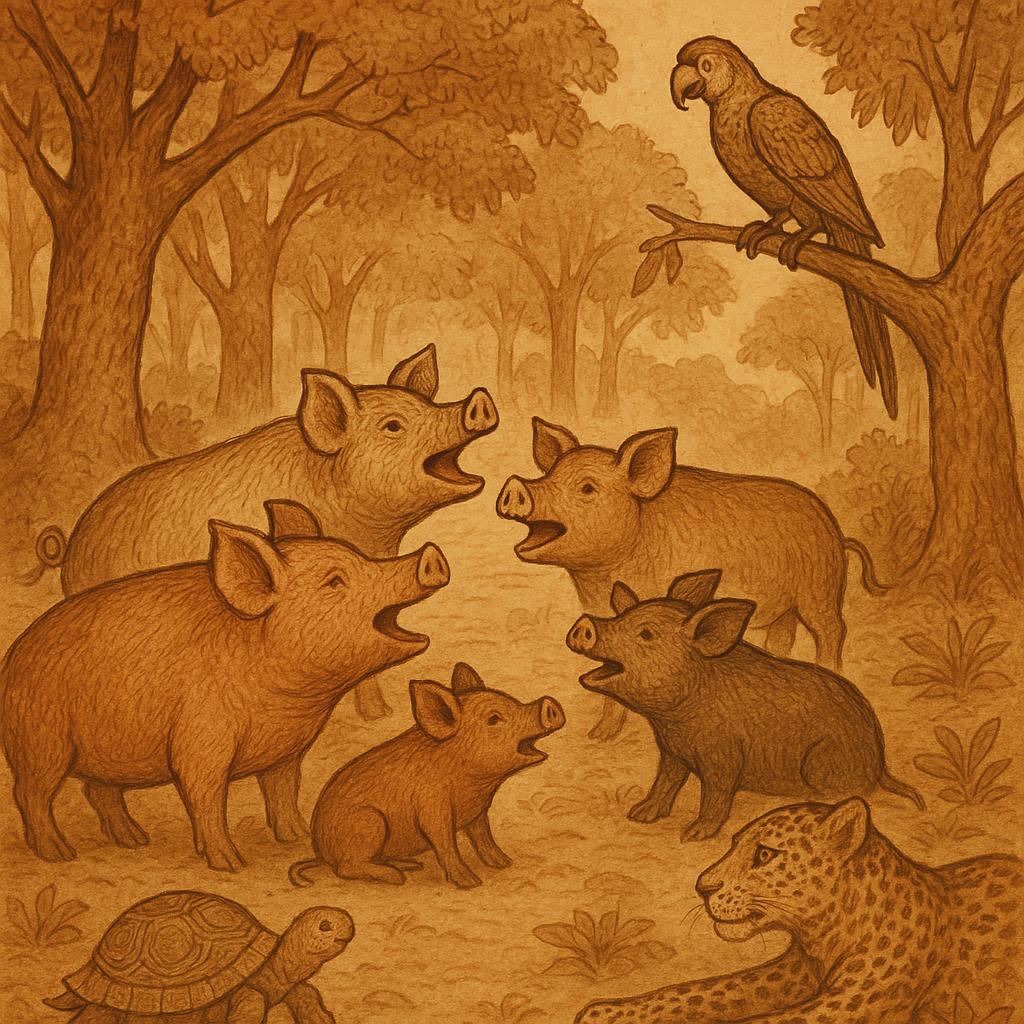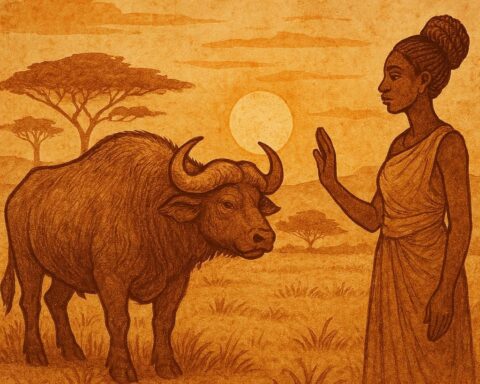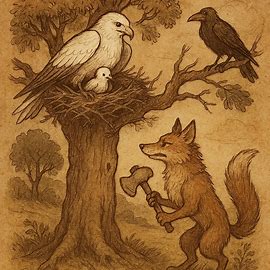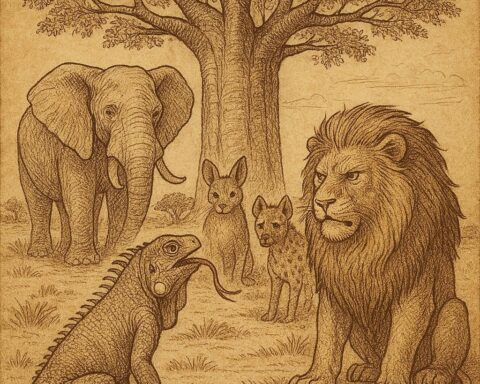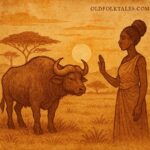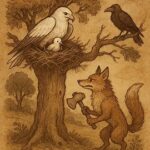Long ago, when the world was young and the forest had not yet settled into silence, animals and people shared one common tongue. Their voices echoed through the villages, and their words were understood by all. Among those who spoke clearly were the swine. They were not the grunting creatures we know today. Instead, they carried themselves with confidence, offering opinions in council and joining conversations around the fires of the village.
The swine were proud of this gift. They believed that their voices set them apart. When they walked into the village square, their deep words rumbled like drums. Children laughed at their jokes, and elders listened carefully to their stories. For a time, it seemed that swine might even take their place among the wisest of animals.
However, pride often brings trouble. The swine, full of their own importance, began to mock others. They laughed at the goat’s bleating voice. They teased the tortoise for speaking slowly and mocked the parrot for repeating what others said. Their words, once warm, grew sharp. The animals who had once welcomed their company began to avoid them.
READ THIS: The Leopard and the Ram
One day, the swine gathered in the clearing to boast. “Listen to us,” they said. “No creature speaks with more power than we do. Even men respect our words. Perhaps it is time we lead the councils. Why should the leopard or the elephant speak before us?”
The leopard, who was nearby, heard this. He narrowed his eyes but said nothing. Instead, he carried the tale to the elders of the forest. They gathered, elephant, tortoise, parrot, and many more. Around the great tree they held counsel, and their faces were grave.
The tortoise, slow and wise, spoke first. “Speech is a gift to be shared with care. It binds us together. But the swine use it to mock and belittle. If they continue, they will divide the forest. We must decide what to do.”
The parrot added, “Let their tongues be silenced! Better grunts than hurtful words. For words carry power, and careless speech can wound more than claws.”
The council agreed. The swine had gone too far. Their voices had become weapons, and their pride threatened the harmony of the forest. A message was sent to the Creator, who watched over all creatures. The Creator listened to the complaint and nodded.
That night, as the swine lay sleeping in the mud, their voices were taken from them. When dawn broke and they tried to speak, only grunts and squeals emerged. They blinked in confusion. They tried again, but no clear words came. Their once rich voices were gone, replaced by the sounds we know today.
At first, the swine panicked. They rushed to the village to explain themselves, but the people only laughed. “What nonsense is this? Do you think we understand your squeals?” The children chased them away with sticks, and the elders shook their heads.
The swine returned to the forest in shame. No longer could they boast, no longer could they mock. Their pride had cost them the very gift they treasured. From that day forward, they lived apart, grunting among themselves, never again able to join the councils of animals or men.
Yet, though their voices were gone, the lesson of their downfall was not forgotten. The animals of the forest remembered, and the people of the Benga passed the story from one generation to the next. They taught their children: speech is precious, but it must be used with care.
Words can build, but they can also destroy. And so the tale of the swine became a warning. To this day, when swine grunt and squeal in the villages, the people remember that once those sounds were words, and that pride turned them into nonsense.
Moral Lesson
The story of Swine Talking reminds us that words are a powerful gift. They can unite communities, bring wisdom, and offer comfort. But if they are misused, through pride, mockery, or cruelty, they can cause division and lead to downfall. True strength in speech lies not in volume or cleverness but in kindness, humility, and respect for others.
Knowledge Check
What is the central theme of the Swine Talking folktale?
The central theme is the misuse of speech and how pride and mockery can lead to downfall.Why did the other animals grow angry with the swine?
The swine mocked and belittled other creatures instead of using their gift of speech with respect.What decision did the council of animals make about the swine?
They appealed to the Creator, who took away the swine’s clear speech, leaving them only with grunts and squeals.What lesson does the Benga tribe teach through this story?
The story teaches that words must be used with humility and kindness, because careless or cruel speech brings consequences.Why do swine no longer speak like humans in this tale?
According to the tale, their pride and misuse of speech caused the Creator to silence them.What broader human value does this folktale highlight?
It highlights the importance of respectful communication and the dangers of arrogance in leadership or speech.Cultural Origin
Source: Benga Tribe, Corisco Island, Equatorial Guinea. Recorded by Robert H. Nassau in Where Animals Talk: West African Folklore Tales (1914).
